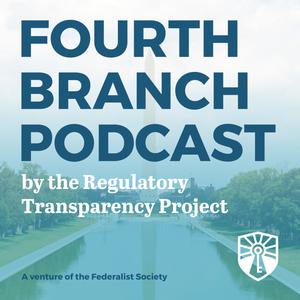🚀 From Google Podcasts to Moon FM in No Time: Your Hassle-Free Migration Guide
👉

The Regulatory Transparency Project is a nonprofit, nonpartisan effort dedicated to fostering discussion and a better understanding of regulatory policies. On RTP’s Fourth Branch Podcast, leading experts discuss the pros and cons of government...
Your feedback is valuable to us. Should you encounter any bugs, glitches, lack of functionality or other problems, please email us on [email protected] or join Moon.FM Telegram Group where you can talk directly to the dev team who are happy to answer any queries.